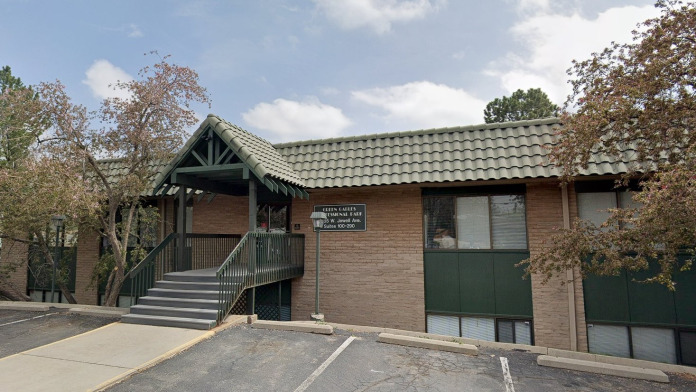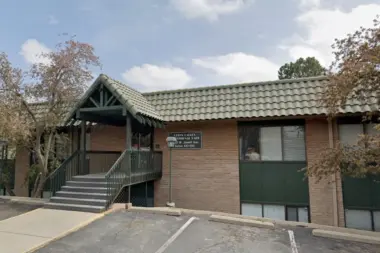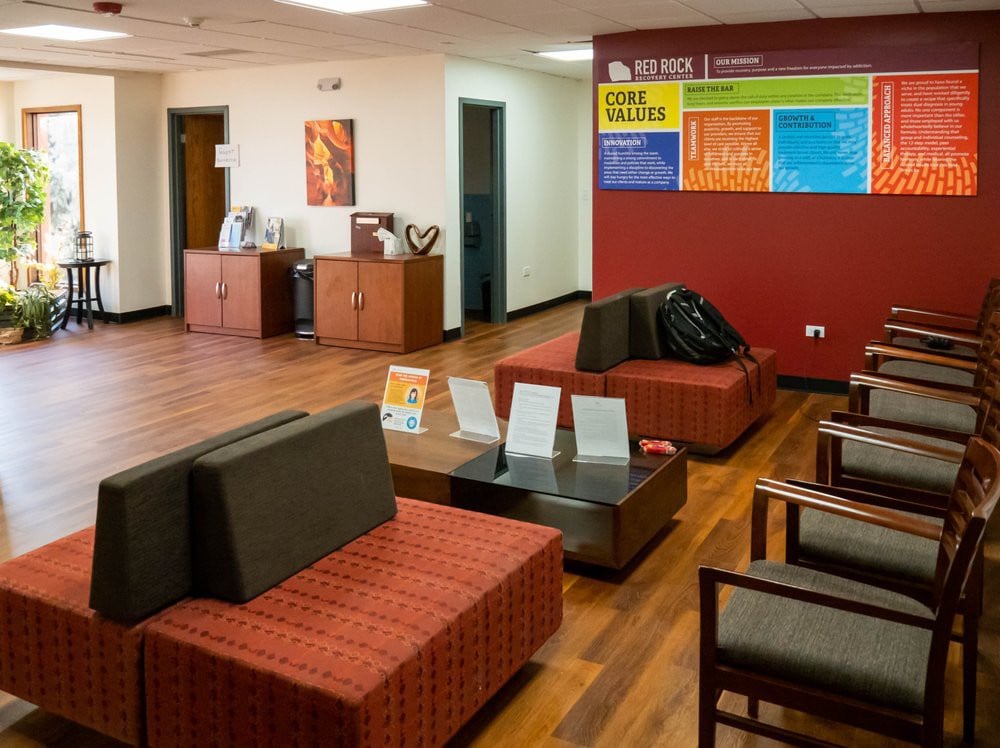Solace counseling helped me to get sober and maintain that sobriety! A place full of supportive and good therapists, I was in their individual cognitive behavioral therapy sessions. Something that makes me feel at ease in my sessions is that the counselors here are very know ...
About Solace Counseling Services
Solace Counseling is an outpatient behavioral health clinic specializing in substance use recovery, DUI education and treatment, and mental health counseling for people dealing with varying life challenges. They can guide you towards holistic healing via personalized care grounded in clinically proven practices like cognitive behavioral therapy (CBT), solution-focused care, and acceptance and commitment therapy. Their staff are well grounded in these models and are committed to helping you heal, reenergize, and rediscover your inner strength.
They boast a comfortable and safe outpatient surrounding where clients are treated with empathy, dignity and respect. The core attraction is that they support both in-person and telehealth care. Telehealth enables you to attend sessions and classes virtually via a secured, confidential and HIPPA-approved platform. This is particularly helpful for folks who aren’t local or have busy life obligations.
Recovery in Suburban Lakewood
Solace Counseling is situated along West Jewell Avenue in the suburban city of Lakewood within Jefferson County just west of Denver in Colorado. Their program also serves patients from the nearby cities. The facility is about six miles southwest of Downtown Denver just two miles south of Belmar Park and four miles northeast of Bear Creek Lake Park. They’re super close to US Route 285 and State Route 121. The location is served by RTD buses. Nearby Lakewood-Wadsworth Light Rail Station connects to downtown Denver.
Support for Justice-Involved Individuals
Solace Counseling is among the top state licensed DUI service providers in the Lakewood area. They offer DUI assessments and track therapy. These programs support pre-sentenced, sentenced, and DMV clients. DUI services in this facility involve comprehensive intake assessment followed by placement in appropriate therapy groups.
You’ll attend weekly psychoeducational classes alongside group therapy for 6-12 weeks, depending on track requirements or your assessed needs. The program guides you toward relapse prevention by equipping you with practical skills to manage life challenges like anger and stress that trigger substance dependence. Solace Counseling can also provide enhanced outpatient therapy if you need intensive treatment beyond DUI Level II therapy. Telehealth makes the whole thing convenient.
Evidence-Based Addiction Recovery & Mental Health Support
Solace Counseling offers intensive outpatient (IOP) care for people struggling with substance use disorders. This primarily involves therapy groups rooted in proven methods like cognitive behavioral techniques and solution focused approaches. Skilled therapist uses these evidence-based practices to help you break unhealthy thoughts or behaviors that encourage substance dependence while instilling accountability. Individual therapy is available for more personalized experiences. This is available in person or via telehealth and is typically scheduled by appointment.
The facility also offers mental health support for those dealing with common psychiatric issues like depression and even co-occurring disorders for men and women. They offer anger management classes and trauma therapy for patients whose substance dependence results from past trauma like childhood neglect or intimate partner violence.
They also support adolescents aged over 13 in recovery to help them navigate substance use issues, school and parental conflicts, and peer pressures. The facility also offers non-DUI substance use evaluation as well as forensic ASAM criteria for judicial and social service requirements. Solace Counseling charges a modest fee for each of its services and accepts insurance payments.
Facility Overview
Latest Reviews
Regarding your edit: Again, thank you for your feedback. We hope you get your needs met.
Rehab Score
Gallery


Accepted Insurance

Other Forms of Payment
Self-pay involves paying for treatment out of your own pocket. You can use savings or credit, get a personal loan, or receive help from family and friends to fund your treatment. If you don't have insurance or your insurance plan doesn't cover a specific program, self-pay can help ensure you still get the care you need.
Medicaid is a state based program that helps lower-income individuals and families pay for healthcare. Medicaid covers addiction treatment so those enrolled can use their coverage to pay for rehab. When a program accepts Medicaid the client often pays very little or nothing out of their own pocket.
Addiction Treatments
Levels of Care
Outpatient Programs (OP) are for those seeking mental rehab or drug rehab, but who also stay at home every night. The main difference between outpatient treatment (OP) and intensive outpatient treatment (IOP) lies in the amount of hours the patient spends at the facility. Most of the time an outpatient program is designed for someone who has completed an inpatient stay and is looking to continue their growth in recovery. Outpatient is not meant to be the starting point, it is commonly referred to as aftercare.
Intensive Outpatient Programs (IOP) are for those who want or need a very structured treatment program but who also wish to live at home and continue with certain responsibilities (such as work or school). IOP substance abuse treatment programs vary in duration and intensity, and certain outpatient rehab centers will offer individualized treatment programs.
12-step programs are addiction recovery models based on Alcoholics Anonymous (AA). A number of substance abuse programs (including some drug and alcohol rehab centers) use the 12 steps as a basis for treatment. Beginning steps involve admitting powerlessness over the addiction and creating a spiritual basis for recovery. Middle steps including making direct amends to those who've been hurt by the addiction, and the final step is to assist others in addiction recovery in the same way. 12-Step offshoots including Narcotics Anonymous (NA), Cocaine Anonymous (CA), Dual Recovery Anonymous (DRA), Sex and Love Addicts Anonymous (SLAA) and Gamblers Anonymous (GA).
Completing a drug or alcohol rehab program shouldn't spell the end of substance abuse treatment. Aftercare involves making a sustainable plan for recovery, including ongoing support. This can include sober living arrangements like halfway houses, career counseling, and setting a patient up with community programs like Alcoholics Anonymous (AA) or Narcotics Anonymous (NA).
Treatments
The goal of treatment for alcoholism is abstinence. Those with poor social support, poor motivation, or psychiatric disorders tend to relapse within a few years of treatment. For these people, success is measured by longer periods of abstinence, reduced use of alcohol, better health, and improved social functioning. Recovery and Maintenance are usually based on 12 step programs and AA meetings.
Professional services are often necessary to recover from addiction. Drug rehab in Colorado provides the expert services needed to address the complex issues of addiction and help individuals start their recovery journey.
A combined mental health and substance abuse rehab has the staff and resources available to handle individuals with both mental health and substance abuse issues. It can be challenging to determine where a specific symptom stems from (a mental health issue or an issue related to substance abuse), so mental health and substance abuse professionals are helpful in detangling symptoms and keeping treatment on track.
Opioid rehabs specialize in supporting those recovering from opioid addiction. They treat those suffering from addiction to illegal opioids like heroin, as well as prescription drugs like oxycodone. These centers typically combine both physical as well as mental and emotional support to help stop addiction. Physical support often includes medical detox and subsequent medical support (including medication), and mental support includes in-depth therapy to address the underlying causes of addiction.
Programs
Adult rehab programs include therapies tailored to each client's specific needs, goals, and recovery progress. They are tailored to the specific challenges adult clients may face, including family and work pressures and commitments. From inpatient and residential treatment to various levels of outpatient services, there are many options available. Some facilities also help adults work through co-occurring conditions, like anxiety, that can accompany addiction.
Recovery is most successful when clients feel accepted and validated by their peers and treatment providers. Facilities that offer LGBTQ-inclusive programming are committed to creating a safe space where everyone can grow and recover without fear of judgment or discrimination. They will have dedicated policies in place to create a safe and supportive environment that fosters free expression.
Young adulthood can be an exciting, yet difficult, time of transition. Individuals in their late teens to mid-20s face unique stressors related to school, jobs, families, and social circles, which can lead to a rise in substance use. Rehab centers with dedicated young adult programs will include activities and amenities that cater to this age group, with an emphasis on specialized counseling, peer socialization, and ongoing aftercare.
Clinical Services
Cognitive Behavioral Therapy (CBT) is a therapy modality that focuses on the relationship between one's thoughts, feelings, and behaviors. It is used to establish and allow for healthy responses to thoughts and feelings (instead of unhealthy responses, like using drugs or alcohol). CBT has been proven effective for recovering addicts of all kinds, and is used to strengthen a patient's own self-awareness and ability to self-regulate. CBT allows individuals to monitor their own emotional state, become more adept at communicating with others, and manage stress without needing to engage in substance abuse.
Whether a marriage or other committed relationship, an intimate partnership is one of the most important aspects of a person's life. Drug and alcohol addiction affects both members of a couple in deep and meaningful ways, as does rehab and recovery. Couples therapy and other couples-focused treatment programs are significant parts of exploring triggers of addiction, as well as learning how to build healthy patterns to support ongoing sobriety.
Dialectical Behavior Therapy (DBT) is a modified form of Cognitive Behavioral Therapy (CBT), a treatment designed to help people understand and ultimately affect the relationship between their thoughts, feelings, and behaviors. DBT is often used for individuals who struggle with self-harm behaviors, such as self-mutilation (cutting) and suicidal thoughts, urges, or attempts. It has been proven clinically effective for those who struggle with out-of-control emotions and mental health illnesses like Borderline Personality Disorder.
Research clearly demonstrates that recovery is far more successful and sustainable when loved ones like family members participate in rehab and substance abuse treatment. Genetic factors may be at play when it comes to drug and alcohol addiction, as well as mental health issues. Family dynamics often play a critical role in addiction triggers, and if properly educated, family members can be a strong source of support when it comes to rehabilitation.
Group therapy is any therapeutic work that happens in a group (not one-on-one). There are a number of different group therapy modalities, including support groups, experiential therapy, psycho-education, and more. Group therapy involves treatment as well as processing interaction between group members.
In individual therapy, a patient meets one-on-one with a trained psychologist or counselor. Therapy is a pivotal part of effective substance abuse treatment, as it often covers root causes of addiction, including challenges faced by the patient in their social, family, and work/school life.
Life skills trainings involve all the skills a person must have in order to function successfully in the world. These include time management, career guidance, money management, and effective communication. Truly successful addiction recovery is based on the ability to not only live substance-free, but to thrive. Life skills teaches the practical necessities of functioning in society, which sets clients up for success in life, and therefore sobriety.
Motivational Interviewing (MI) is a clinical approach to helping people with substance abuse issues and other conditions shift behavior in positive ways. It is more goal-oriented than traditional psychotherapy, as MI counselors directly attempt to get clients to consider making behavioral change (rather than wait for them to come to conclusions themselves). Its primary purpose is to resolve ambivalence and help clients become able to make healthy choices freely.
Rational Behavior Therapy (RBT) is a form of cognitive behavioral therapy meant to be short-term and comprehensive. It was intended to help clients become more self-sufficent and move forward without the need for expensive, ongoing therapy. It includes an emotional self-help method called “rational self-counseling,” the purpose of which is to give clients all the skills needed to handle future emotional issues by themselves, or with significantly less professional help.
Trauma therapy addresses traumatic incidents from a client's past that are likely affecting their present-day experience. Trauma is often one of the primary triggers and potential causes of addiction, and can stem from child sexual abuse, domestic violence, having a parent with a mental illness, losing one or both parents at a young age, teenage or adult sexual assault, or any number of other factors. The purpose of trauma therapy is to allow a patient to process trauma and move through and past it, with the help of trained and compassionate mental health professionals.
Staff & Accreditations
Staff
Chris Conway, MA, CAS
Owner & Executive Director
Niki Worthan, MA, LAC
Clinical Director, Director of Operations
Jaime Barth, BA, CAT
Clinical Counselor, Front Office Manager
Jennifer Alm, BS, CAS
Clinical Counselor
Ashli Mickelson, CIT
Counselor-in-Training, Admin Support
Becca Taylor, BS, CAT
Certified Counselor, Life Coach
Accreditations

The Substance Abuse and Mental Health Services Administration (SAMHSA) is a branch of the U.S. Department of Health and Human Services. Established in 1992 by congress, SAMHSA's mission is to reduce the impact of substance abuse and mental illness on American's communities.
SAMHSA Listed: Yes

State Licenses are permits issued by government agencies that allow rehab organizations to conduct business legally within a certain geographical area. Typically, the kind of program a rehab facility offers, along with its physical location, determines which licenses are required to operate legally.
State License: Colorado
Contact Information
6655 West Jewell Avenue
Suite 100
Lakewood, CO 80232
